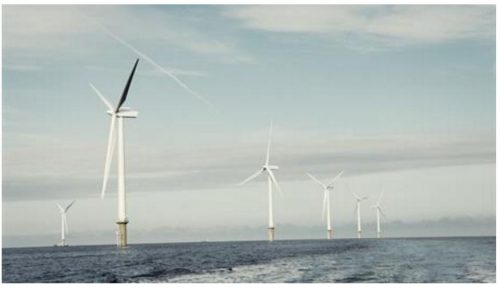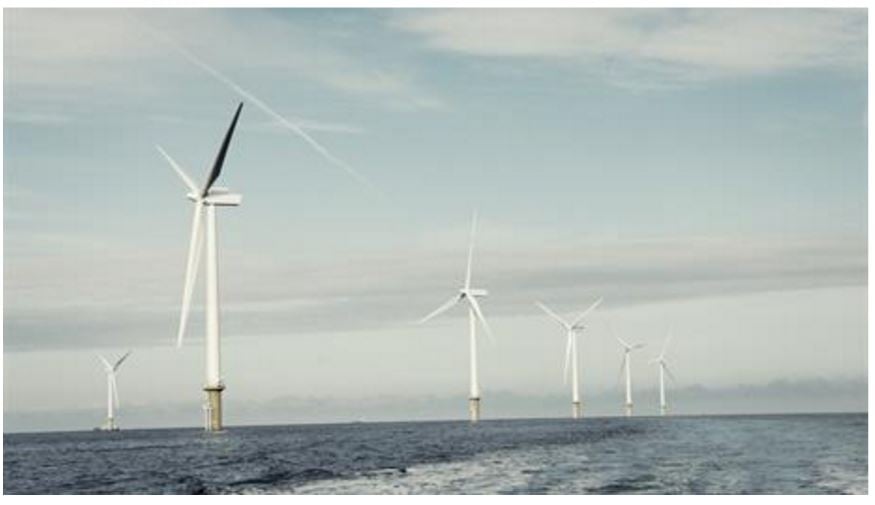Low carbon projects are helping to boost economic activity in Northern England, says a sustainability pressure group. In a new report, it urges regional and national government to prioritize the continued growth of the North’s green economy.
The Aldersgate Group campaigns for ways to push the UK toward a more sustainable economy. Its members include big public and private sector organizations, plus business, political, and society leaders.
Their new report describes how low carbon projects are already creating jobs and developing supply chains in Northern England. It explains how investment in green energy schemes is growing infrastructure, developing skills, and boosting innovation in the region.
 A new report urges government to prioritize Northern England’s low carbon economy, as represented by schemes like the Hornsea Project One offshore windfarm. Image: DONG.
A new report urges government to prioritize Northern England’s low carbon economy, as represented by schemes like the Hornsea Project One offshore windfarm. Image: DONG.
Green schemes
The report showcases a number of green schemes across Northern England, these include:
– a cluster of low carbon projects from Siemens, Associated British Ports, and DONG Energy in Hull
– the creation of a low emission industrial zone in the Tees Valley
– Yorkshire Water’s peatland restoration scheme in the Pennines
In launching the Northern Powerhouse, the UK government’s intention was to boost economic growth in the North of England by strengthening transport links, investing in science and innovation, and devolving power from London.
However, the new report argues that equal priority should be given to growing the low carbon sector – which has already created 136,000 jobs in the region.
Joan Walley, Chair of the Aldersgate Group, says the case studies in the report show the low carbon economy is not only supporting economic growth in Northern England – it is also helping the UK to reach its climate change targets. She urges:
“Both national government and devolved local authorities should build on these successes and continue to champion investment into low carbon infrastructure in the North so that it can continue setting the pace.”
Helping to regenerate communities
Brent Cheshire, DONG Energy’s UK chairman, says sustained investment in renewable energy is helping to regenerate communities that have lost their traditional industries. It is also helping to build “a robust supply chain and attracting international manufacturers to locate plants in the UK.”
Matthew Knight, Siemens’ Director of Strategy and Government Affairs, says the time is ripe for Britain to adopt a clear, low carbon strategy to help it grow its manufacturing base and become a major exporter of low carbon technologies like offshore wind.
Among its recommendations, the report calls for a new carbon capture and storage strategy, regional champions of the low carbon economy with devolved powers, and a greater focus on developing green economy skills.
The report also calls for a “clear and stable national low carbon policy landscape,” more emphasis on the condition of the natural environment, protection of businesses and communities from risks to infrastructure such as flooding, and a plan to ensure new infrastructure is resilient to the impacts of climate change.
The report “Setting the pace: Northern England’s low carbon economy,” is available for download.
Video – DONG Hornsea Project One
The following video describes one of the low carbon projects being built in the North of England by Danish renewable energy company DONG. When complete, Hornsea Project One – an offshore windfarm off the Yorkshire coast – will generate 1.2 GW of electricity from up to 174 turbines, enough to power 1 million homes.
The project is part of a potential £6 bn investment scheme that will create 1,600 construction jobs.

